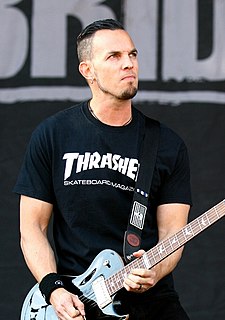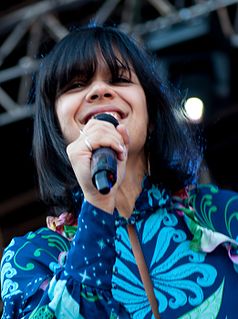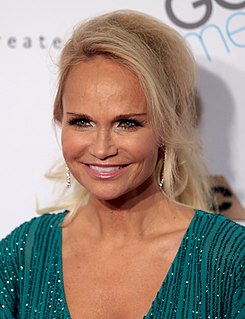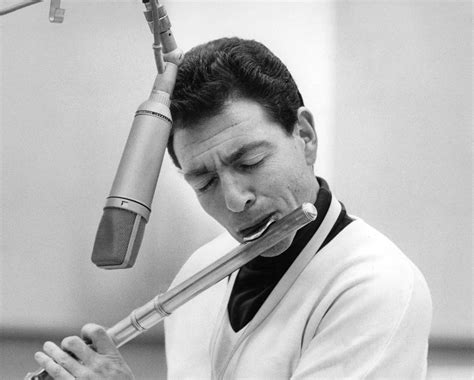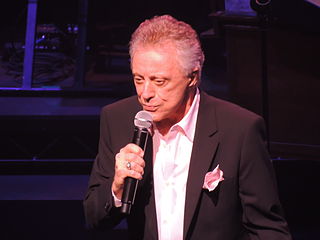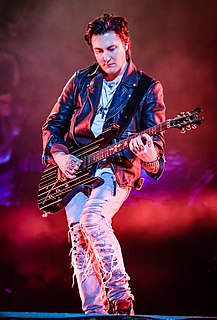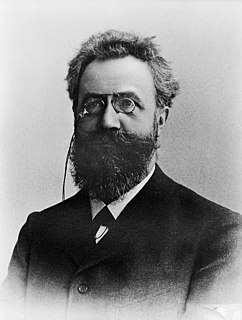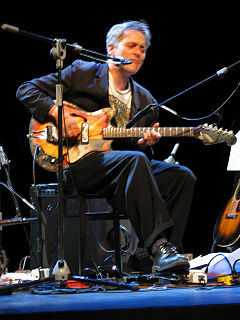A Quote by Bobby McFerrin
When we listen to improvisational jazz, or solo classical violinists, the way they phrase and inflect melodies feels vocal, like they’re talking to us. When I was figuring out how to perform solo, I wanted to move back and forth between bass riffs, melody, and harmony, so I often used sounds instead of — or alongside — the words of a song. I found that if I sang a line using the consonants, vowels, shadings, and inflection we recognize as human language sounds, people responded as if I were talking to them.
Quote Topics
Alongside
Back
Back And Forth
Bass
Between
Classical
Consonants
Feels
Figuring
Forth
Found
Harmony
How
Human
Human Language
Instead
Jazz
Language
Like
Line
Listen
Melodies
Melody
Move
Often
Out
People
Perform
Phrase
Recognize
Riffs
Sang
Solo
Song
Sounds
Talking
Them
Us
Used
Using
Vocal
Vowels
Wanted
Way
Were
Words
Related Quotes
Words reduce reality to something the human mind can grasp, which isn’t very much. Language consists of five basic sounds produced by the vocal cords. They are the vowels a, e, i, o, u. The other sounds are consonants produced by air pressure: s, f, g, and so forth. Do you believe some combination of such basic sounds could ever explain who you are, or the ultimate purpose of the universe, or even what a tree or stone is in its depth?
I don't really break into too many solos. But I've never been a super-big solo guy anyway. I like to make the main melody guitar lines of the songs as cool and interesting as possible without just strumming chords. I like to have chords intertwined with riffs here and there, but I'll do the riffs and the solos where the bottom will drop out. Basically, I do everything for the song, I don't do it for the solo glory. Kids aren't really into that anymore for some reason.
I auditioned for a solo in church and got it. I was about seven and I sang a song called, 'Jesus, I Heard You Had a Big House' and I remember people standing up at the end and me thinking, 'Oh, I think I'm going to like this.' That's how it all began. Sounds funny to say you got your start in church, but I did.
Instead of thinking in terms of chords, I think of voice-leading; that is, melody line and bass line, and where the bass line goes. If you do that, you'll have the right chord. [These voices] will give you some alternatives, and you can play those different alternatives to hear which one suits your ear. Keep the bass line moving so you don't stay in one spot: if you have an interesting bass line and you roll it against the melody, the chords are going to come out right.
Introvert conversations are like jazz, where each player gets to solo for a nice stretch before the other player comes in and does his solo. And like jazz, once we get going, we can play all night. Extrovert conversations are more like tennis matches, where thoughts are batted back and forth, and players need to be ready to respond. Introverts get winded pretty quickly.
Imagine a poem written with such enormous three-dimensional words that we had to invent a smaller word to reference each of the big ones; that we had to rewrite the whole thing in shorthand, smashing it into two dimensions, just to talk about it. Or don’t imagine it. Look outside. Human language is our attempt at navigating God’s language; it is us running between the lines of His epic, climbing on the vowels and building houses out of the consonants.
When I was a kid, I used to listen to my Emerson radio late at night under the covers. I started by listening to jazz in the late 1940s and then vocal harmony groups like the Four Freshmen, the Modernaires and the Hi-Lo's. I loved Stan Kenton's big band - with those dark chords and musicians who could swing cool with individual sounds.


